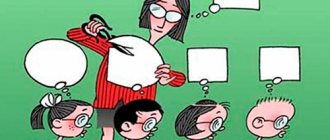general description
A person’s rude treatment of others cannot be called correct and adequate. The consequences of the actions are to cause pain and suffering. It is necessary to understand why this happens.
Definition of rude attitude
The history of mankind is filled with cruel events. Military actions, conflicts, torture, violence against women and children, neglect of the older generation accompanies the development of any society. A person with cruelty traits is not able to help another, but, on the contrary, commits only evil acts.
From a scientific point of view, cruelty is a moral and psychological trait of a person, manifested in a merciless, impudent, insulting attitude towards other living beings, causing them pain and attempting to kill them.
The offender derives pleasure from the knowledge that he has caused suffering or torment to a living being.
Objects of ill-treatment:
- people (adults and children);
- animal.
This topic causes wide discussions among lawyers, philosophers, psychologists and the church. Abuse is subject to criminal liability.
Subjects of crimes have an unhealthy psyche, usually deviations arise due to mental trauma, similar treatment or temporary clouding of reason due to drug use.
Synonyms of the concept:
- Ruthlessness.
- Inhumanity.
- Heartlessness.
- Flayering.
- Atrocity.
Issues of combating such actions are resolved individually, because what is considered humiliating and unacceptable for some, brings pleasure to representatives of other cultures and is revered or respectful. When committing a brutal crime, we mean awareness of the results of one’s actions in relation to the object.
The tendency towards heartless behavior is inherent in every person, being the opposite of pity. The more intensely and deeply a person hides his inhumanity, the more forcefully it breaks out.
Cruel acts are called aggressive, but these concepts do not replace each other. An aggressive person is filled with feelings of fear, hunger, self-defense, possessiveness, and cruelty is empty. This is indifference to the feelings and needs of others, lack of understanding of other people's suffering.
Ruthlessness reflects dissatisfaction with oneself or the manifestations of one's life, holding others accountable instead of one's own changes. This is a line that conceals deep internal problems (excessive sentimentality, emotional sensitivity, psychological trauma, demonstration of strength).
Stages and types of inhumane treatment
A merciless person is perceived by society as strong and omnipotent due to a lack of sensitivity and a reduction in moral principles. This feature is not positive and strong among others. Due to the lack of internal and external restraining factors (sensitivity to them), the manifestations become more intense each time.
Stages of abuse:
- Insulting other people.
- Assault.
- Beating to the point of fractures and severe injuries.
- Torture, sadism, murder.
The tragedy of a person with a disturbed psyche often ends in the commission of a crime. Such a person is left alone with problems, their inner world constantly hurts, so sensitivity to the pain of others disappears.
Main factors:
- The person is not socially active.
- Any communication traits are difficult.
- Relatives and relatives are absent.
- There are internal grievances.
Innocent people suffer after cruel acts are committed. Such actions often lead to a tragic ending. Psychologists say that violent manifestations are a normal state of the individual in a short period of childhood, when the child learns about the world and learns to control emotions.
Heartlessness has many faces in its manifestations, but there is no person who has not encountered it. The main reason is dissatisfaction with life, in which the accumulation of stress and irritability requires an outlet. The objects of moral and physical bullying are children, colleagues and subordinates at work, as well as homeless animals.
When a person does not have serious emotional breakdowns, the responsibility for ruthless treatment lies with both parties to the conflict.
Displaced aggression manifests itself with the emergence of society, its norms and attitudes. When a person cannot show dissatisfaction and aggression, defending his own point of view before an authoritarian boss, he takes out his grievances and negativity in the family.
When in family relationships education is created on the control of personal feelings and absolute obedience, over time such a person will show ruthlessness.
How cruelty manifests itself
Destructive Behavior
Studying how cruelty manifests itself, psychologists have identified typical traits of inhumane individuals. Manifestations of cruelty can be seen in:
- irritability;
- hatred;
- negativism;
- bullying, expressed in constant mockery and ridicule of a weak person;
- the habit of acting out of spite to others, acting contrary to established norms and rules;
- tendency to freak out over every little thing and demonstrate negative behavioral reactions;
- vindictiveness;
- the desire to prove one’s rightness at all costs, to defend one’s point of view;
- reduced moral level of a person;
- a tendency to spread rumors and gossip about friends and colleagues out of envy;
- using foul language and insults to other people;
- the tendency to use physical force to protect one’s interests;
- poor development of communication skills;
- sadistic tendencies;
- tendency to violence and dominance, frequent infliction of physical harm to others;
- emotional coldness, callousness;
- lack of empathy, ruthlessness towards children, the elderly and animals;
- tendency to commit destructive actions against plants and natural objects;
- deliberate poor performance of professional duties with the aim of causing harm to potential consumers or production;
- depreciation of universal human values.
Figure 1 – Teenage cruelty
Examples and preventive measures
Authors of different periods in their works touched on the topic of rough treatment. It is important to take the right path of correction in time and not be cruel to living beings.
Literary illustrations
In the story “The Overcoat” by N. Gogol, the mockery and humiliation of Akaki Bashmachkin by his colleagues is clearly visible at first. A man cannot fight back and does not react to bad jokes. Approaching his cherished goal - buying a new overcoat, Akaki saves money, denying himself everything. Subsequently, the inhumane act of the thief destroys all hopes. The overcoat is stolen, but Bashmachkin fights for his thing, turning to his friends for help.
The situation is aggravated by the fact that everyone refuses the main character and does not strive to find the loss. The attitude of others subsequently leads to the death of the hero. According to the author, “indifference is considered the highest rigidity .
In Turgenev's story "Mumu" cruelty is manifested in Lady Gerasim. A woman does not care that, by taking the life of a harmless creature, she inflicts moral pain on her subordinate. When Gerasim drowns his beloved dog, he is not considered a cruel person. The order for the murder is given by the lady.
In Lermontov's novel A Hero of Our Time, Grigory Pechorin shows his cruel feelings by humiliating the young cadet Grushnitsky for the sake of his own greatness and amusement. Pechorin also makes Bela fall in love with him and then leaves her. The main character of the novel amuses himself by torturing others, causing suffering.
Pushkin A.S. touches on this topic in the novel “Dubrovsky”. The two main characters, friends Kiril Troekurov and Andrei Dubrovsky, are quarreling. Due to pride, arrogance and cruel behavior, Kirila did not apologize to his friend for the insults, but began to take revenge. Thanks to his connections, Troekurov deprived the impoverished Dubrovsky of his last estate. The embittered and cruel Kiril does not care about the future place of residence of his former friend, he shows his superiority and greatness. Andrei Gavrilovich cannot come to terms with the betrayal of his comrade, and soon falls ill and dies.
An example of heartlessness is manifested in the work of I. S. Turgenev “Fathers and Sons.” For Evgeny Bazarov, his own pride and beliefs are important. He treats his parents coldly and, after a long separation, does not pay them due attention, thereby offending them. This is unfair and cruel to the parents, because at the end of the novel, only the father and mother mourned Eugene’s death.
Ways to fix
The state of mixed rage and helplessness requires psychological therapy, as over time it leads to psychosomatic disorders (mainly of the cardiovascular system) and disrupts the social interaction of the individual. A person becomes indifferent and does not realize the gravity of his crimes, not understanding who is being harmed.
The most terrifying reason for heartlessness in terms of its consequences is the desire for revenge for the pain suffered. The danger is due to the fact that a person chooses the most painful and terrifying options for dealing with the offender. A similar thing happens when personal pain within has destroyed all remaining emotions and leads to madness.
A person brought up in inhumane conditions considers this the norm, a manifestation of love. Correcting such a worldview requires considerable effort and time and is not always successful.
Much attention is paid to overcoming hostility and aggressiveness as one of the main social problems in the world. Various psychosocial technologies are being created aimed at preventing human aggression, measures that can resist inhumane treatment. In today's Russia, preventing atypical, cruel behavior of children and the younger generation is an objective necessity.
Stages of preventive measures:
- Studying the role of family, parents (type of upbringing and behavior).
- Correction of mother-child relationships.
- Developing a healthy lifestyle and personal resources.
- Building new correct human relationships, compassion and control over emotions.
- Establishing close contact with household members.
- It is important to separate and discuss dangerous situations, to trace good and bad deeds from childhood.
- Timely find out the reasons for severe aggression.
- Emotional support for self-confidence.
A child should not withdraw and be afraid to have a heart-to-heart talk with a parent. Everything comes from childhood - the formation of character in adolescence, correct and proper behavior. It is important to identify the problem in time and find rational solutions.
Types of cruelty
There are different approaches to classifying human cruelty.
According to the direction of human cruelty, it can be:
- aimed at people;
- aimed at animals.
This approach is used by lawyers when qualifying illegal actions.
There is also a psychological classification of cruelty, according to which cruelty can be:
- hidden (veiled) - manifests itself in barbs that a person makes towards an interaction partner, arranged unpleasant “accidents”;
- direct – implemented through open cruel treatment with the aim of causing harm, physical or mental suffering to a person.
Open toughness requires more determination and courage. Individuals who were unable to cope with their own phobias in childhood are prone to this behavior. In an adult, fear is transformed into desperate attempts at self-defense, expressed in inhumanity.
There are no articles in the current regulatory legal acts that provide for the establishment of criminal or administrative liability for hidden signs of ill-treatment of a person, because it is unrealistic to prove the guilt of the offender in this case. The Criminal Code of the Russian Federation and the Code of Administrative Offenses establish sanctions only for openly demonstrated hostility. This is seen as a pressing problem in Russian legislation, since a person suffers no less from hidden aggression than from overt cruel acts.
Examples of cruelty in everyday life
There are many examples of cruelty in everyday life:
- At the enterprise, one of the employees was respected among his colleagues and communicated politely with his superiors. Everyone believed that he was not only a professional in his field, but also a kind person. When the director of the enterprise resigned, he appointed this employee to take his place. According to the management, a more suitable person for the managerial position could not be found, because he combines professional competence, many years of experience and humanity. Having learned about the promotion, the man was very happy, because he had dreamed about it for several years. However, after some time, the subordinates saw a completely different side of the new boss’s nature. He became tough, cold-blooded, aggressive. Instead of looking for ways to increase the productivity and prestige of the enterprise, he looked for those to blame, deprived them of bonuses, humiliated and insulted them. This is an example of how a person can wear a pretty mask for a long time, wanting to achieve his personal goal. But power changes people beyond recognition. Having gained the opportunity to command others, feeling his superiority, the villain reveals himself in all his glory.
- The girls Katya and Masha were best friends. They went shopping together and often visited each other. But one day Katya started having an affair. The girl immediately rushed to share her joy with her friend, but Masha was unpleasant to hear this. She was offended that guys fell in love with the blonde Katya, but no one paid attention to her. Of course, Masha did not show her envy to her friend, but she decided to certainly separate Katya from her beau. Masha resorted to meanness. She staged it as if Katya had stolen money from her. The girl organized everything so that Katya’s new gentleman would find a wallet with someone else’s money. Naturally, the young man did not want to continue the affair with the “thief”. Masha was pleased.
psychologist
Asya Rakhovich
Psychologist with more than 8 years of experience. Consultant on interpersonal and marital relationships, self-discovery.
Ask a Question
How to overcome your cruelty
To get rid of destructive behavior you need to:
- Admit there is a problem. Recognizing negative character traits, accepting one’s shortcomings is the starting state. To correct some shortcoming or change for the better, you must first admit your imperfection.
- Willingness to accept medical and psychological help. Psychotherapists successfully correct negative behavioral patterns. The effect is achieved through psychocorrectional exercises and medication.
- Constantly analyze the consequences of your own actions. Only self-criticism and high demands on oneself will help a person learn to treat people kindly.
- Together with a psychologist, it is necessary to work through childhood traumas and experience negative emotions.
- Attend personal growth trainings, develop empathy, emotional intelligence and communication skills.
- To treat people kindly, you need to love yourself. This involves giving up envy and endlessly comparing yourself to others. A person who loves himself radiates positive energy, people are drawn to him, and he becomes an interesting conversationalist. Positive self-perception stimulates a person to do good deeds, nobility and mercy. Gradually, good deeds will become a new habit of a person’s life.
- It is useful to learn to take criticism constructively. Without this, it is impossible to learn to distinguish good from evil.
- Reading classical works of fiction helps to get rid of cruelty in the heart. Similar healing of the soul can be achieved by listening to classical music.
- You can learn to care for people by caring for animals. Ideally, a four-legged friend should be picked up on the street and brought into your home. If a person can do this, the thin strings in his heart will tremble and the ice will melt.
Trying to cope with your own destructive behavior on your own may not be successful. For positive dynamics to be sustainable, the help of a qualified psychologist is necessary.
How to protect yourself from abuse
To protect yourself from abuse and mistreatment, a person needs to:
- Increase self-confidence. The victims of abusers are weak people without a core, who are unmistakably chosen as the object of aggression by tough people.
- It is important to learn to talk openly about your feelings. If the victim silently tolerates the abuse, the abuser may not even realize that she is uncomfortable with such treatment. It is important for every person to learn to defend their boundaries.
- At the very first attacks of the aggressor, you need to put him in his place and fight back. If aggressive behavior is immediately stopped, the abuser will not have the desire to attack the victim again.
- Learn to boldly ask for help. Often, villains abuse their victims for years because they are confident that they will remain unpunished. They intimidate their prey. But in cases of violence, the victim must find the strength to seek help from the police.
- Constantly analyzing the actions of friends and family will help you stop communicating with unworthy people in a timely manner. A healthy social environment is the key to a stable psycho-emotional state.
- Regular sports activities give self-confidence to both young people and girls. They help maintain physical fitness and correct posture. Classes in the sports section prepare a person for unforeseen situations. Knowing the basics of self-defense will never be superfluous.
Self-defense helps you fight back against an offender
Reasons for cruelty
There are many factors that contribute to the formation of a rigid, socially dangerous style of behavior in a person.
Reasons for the development of anger in children
There are so-called sadistic children who like to abuse animals and inflict pain on the weak and defenseless. Possible reasons for this behavior could be:
- raising a child as an idol of the family, parents satisfying the child’s every whim;
- abuse of a child at home, use of physical force by parents against a child;
- the child's experience of physical, sexual or emotional abuse;
- parental prohibition on open demonstration of feelings, which is expressed in the fact that parents ask for silence, prohibit laughing or crying loudly;
- anger at parents;
- early death of parents, as a result of which the child is placed in a boarding school, where he does not receive love and affection;
- too severe punishments, unfair punishments;
- child neglect;
- lack of friends;
- poor development of communication skills, inability to establish contact and maintain communication;
- communication of a child with criminal authorities;
- the teenager’s belonging to one or another subculture;
- hypersensitivity and vulnerability of the child;
- desire to appear strong;
- the desire to take revenge for one’s suffering;
- low self-esteem of the individual, the presence of psychological problems and intrapersonal complexes.
Psychologists have found that the psychological prerequisites for the formation of cruelty are unfulfilled human needs for love, understanding and kindness. Deprivation of affection pushes him to do terrible things. Abuse of a child in childhood explains his future violent behavior.
Can cruelty be justified?
Representatives of different sciences have different opinions about whether cruelty can be justified. A definite answer has still not been found. This is due to the fact that even the brutal actions of military personnel in battle involve inflicting physical pain and injury on other people, even enemies.
But we cannot condemn any manifestations of cruelty, because each person has his own story, his own past. No person can judge another without knowing what is behind his actions.
In accordance with the periodization of mental development, only the cruelty of children at an early age, when they learn about the world and first become acquainted with such a phenomenon as pain, can be clearly justified. A baby can hit his mother not because he is hostile towards her, but because he does not yet know that his mother is in pain.
Violent children









